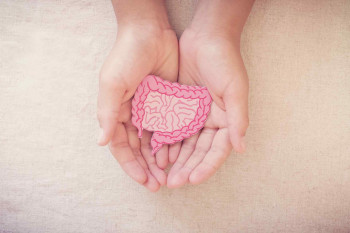The Surprising Link Between Exercise and Brain Health
Welcome to the blog of the AINS Apex Institute of Neuro Spine, led by renowned neurologist Dr. Vikas Bhardwaj. In this article, we will explore the fascinating and surprising connection between exercise and brain health.
While exercise is commonly known for its physical benefits, research has increasingly revealed its positive impact on the brain. So, let's delve into the science and understand how exercise can improve cognitive function, memory, and overall brain health.
The Brain-Body Connection:
The brain and the body are intricately connected, and it should come as no surprise that physical exercise can impact brain health. Engaging in regular exercise has been shown to increase blood flow, enhance oxygen delivery, and stimulate the release of beneficial hormones and growth factors that support brain function.
Boosting Cognitive Function:
Exercise has a direct impact on cognitive function, including memory, attention, and problem-solving skills. When we exercise, our heart rate increases, leading to improved blood flow to the brain. This enhanced blood flow delivers more oxygen and nutrients, thereby promoting the growth of new neurons and strengthening existing neural connections. Consequently, exercise has been linked to improved cognitive performance and a reduced risk of cognitive decline.
The Role of Neurotrophins:
Neurotrophins are a family of proteins that support the growth, survival, and maintenance of neurons. Exercise stimulates the production of these neurotrophins, such as brain-derived neurotrophic factor (BDNF). BDNF plays a crucial role in promoting neuroplasticity, the brain's ability to adapt and rewire itself. By increasing BDNF levels, exercise facilitates the formation of new connections between brain cells, leading to enhanced learning, memory, and overall brain health.
Exercise and Neurogenesis:
Neurogenesis refers to the process of generating new neurons in the brain. It was long believed that neurogenesis only occurred during early development. However, studies have shown that exercise can stimulate neurogenesis in key brain regions, such as the hippocampus, which is responsible for learning and memory. The production of new neurons in this region is associated with improved cognitive performance and a reduced risk of neurodegenerative diseases.
Combating Mood Disorders:
Exercise has proven to be a powerful tool in managing and preventing mood disorders, such as depression and anxiety. Physical activity releases endorphins, often referred to as "feel-good" hormones, which can boost mood and alleviate stress. Additionally, exercise promotes the release of neurotransmitters like serotonin and dopamine, which play essential roles in regulating mood and promoting feelings of well-being. Regular exercise has been linked to a decreased risk of developing depression and anxiety disorders.
Reducing the Risk of Neurodegenerative Diseases:
One of the most compelling aspects of the exercise-brain health connection is its potential to reduce the risk of neurodegenerative diseases, such as Alzheimer's and Parkinson's. Physical activity has been associated with a lower incidence and slower progression of these conditions. The mechanisms through which exercise provides protection include reducing inflammation, increasing the production of antioxidants, and promoting the clearance of harmful proteins in the brain.
Conclusion:
The evidence is clear: exercise is not just beneficial for our physical health but also plays a significant role in preserving and enhancing brain health. From boosting cognitive function and memory to reducing the risk of neurodegenerative diseases and mood disorders, regular exercise has far-reaching positive effects on the brain. As leaders in neurology and spine care, AINS Apex Institute of Neuro Spine encourages individuals of all ages to incorporate exercise into their daily routines, reaping the rewards of a healthier body and mind.
FAQs
How much exercise is needed for better brain health?
Recommended guidelines suggest at least 150 minutes of moderate-intensity aerobic exercise or 75 minutes of vigorous-intensity aerobic exercise per week, along with strength training exercises.
Can exercise prevent age-related cognitive decline?
Yes, regular exercise has been linked to a reduced risk of age-related cognitive decline and conditions like dementia and Alzheimer's disease.
What types of exercise are best for brain health?
A combination of aerobic exercise and strength training is generally recommended for optimal brain health.
How does exercise benefit the brain?
Exercise increases blood flow, oxygen delivery, and the release of beneficial hormones and growth factors, promoting the growth of new neurons, strengthening neural connections, and improving cognitive function.
Is it ever too late to start exercising for brain health?
No, it's never too late to start exercising for brain health. The benefits can be enjoyed at any age, so it's never too late to begin a regular exercise routine.

























